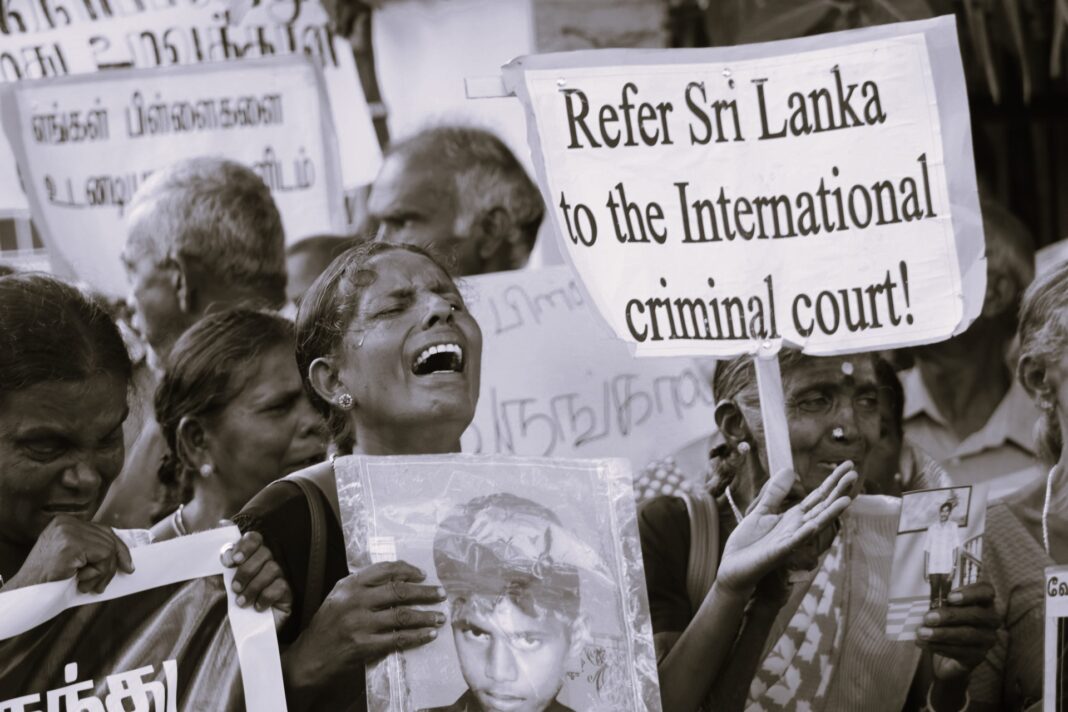A broad coalition of Tamil political parties, civil society organisations, religious leaders, and academic institutions from Sri Lanka’s North-East has issued a powerful appeal to the United Nations Human Rights Council (UNHRC), demanding that Sri Lanka be referred to the International Criminal Court (ICC) for the crime of genocide.
In a letter addressed to the UN High Commissioner for Human Rights and diplomatic missions, the signatories call for a resolution that urges the UN General Assembly, Secretary-General, and Security Council to formally initiate international accountability mechanisms for war crimes, crimes against humanity, and genocide committed during Sri Lanka’s armed conflict.
A Unified Tamil Voice
The appeal is backed by a wide spectrum of Tamil actors, including:
- Political parties such as the Tamil National People’s Front (TNPF), Tamil Eelam Liberation Organisation (TELO), Democratic Tamil National Alliance (DTNA), Tamil National Green Organisation, and Tamil National Council.
- Over 100 civil society groups and academic institutions.
- Religious leaders, including bishops from Mannar and Trincomalee.
This unified stance reflects growing frustration with the international community’s failure to act decisively, despite repeated calls for justice over the past 16 years.
Rejecting Domestic Mechanisms
The letter explicitly rejects any resolution that grants the current Sri Lankan regime time or political space to initiate domestic accountability processes. It warns that the state’s entrenched ethnocratic structure and ideological dominance continue to obstruct genuine justice.
Citing the failure of the 2015 “good governance” government to deliver on its promises, the signatories caution against repeating the same mistake with the administration led by President Anura Kumara Dissanayake.
“The solution does not come through change in governments,” the letter states. “The solution cannot be also ‘positive engagement’ with governments who rhetorically play obeisance to reconciliation – empty promises of change that do nothing to repudiate deeply rooted bonds to the politics of ethnic domination and ideological supremacy.”
Chemmani Mass Graves and International Oversight
The letter highlights the recent exhumations at the Chemmani mass grave site, where 135 bodies—including children—have been identified. It calls for urgent international involvement in future excavations to ensure forensic integrity and prevent evidence tampering.
The coalition proposes that the UN Special Rapporteur on extrajudicial killings coordinate international monitoring of grave sites, reiterating that only an internationally mandated inquiry—not domestic efforts—can deliver justice.
📌 Additional Demands
The coalition also calls for:
- A time-bound extension of the UN’s Sri Lanka Accountability Project (OSLAP), explicitly linked to an ICC referral.
- Support for universal jurisdiction cases outside Sri Lanka.
- A comprehensive re-mapping of mass graves across the North-East.
- Greater scrutiny of militarisation, land grabs, surveillance of activists, and Sinhala-Buddhist colonisation.
- Repeal of repressive laws such as the Prevention of Terrorism Act (PTA) and the Online Safety Act.
A Plea Born of Weariness
The letter concludes with a poignant reminder of the Tamil community’s long-standing struggle for justice:
“For the last 16 years, Tamils have in one voice… asked for the UN system and the international community to deliver on the promise held out by international institutions entrusted with delivering justice. We write this letter with weariness, without much hope that action will follow – but hope is all we can.”
(with the inputs from Tamil Guardian)
